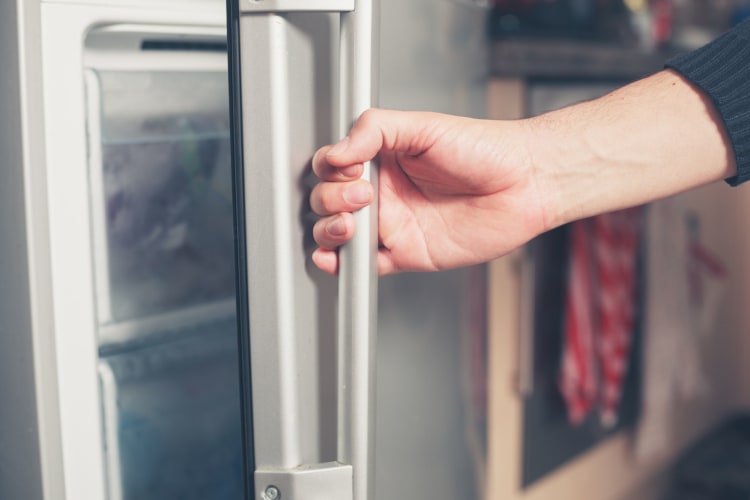Can Nuts Expire?

You might ask yourself “can nuts expire?”, especially if you've found an old bag of nuts in your pantry and wondered if they're still safe to eat. You're not alone! Nuts are a popular, healthy snack, but like all foods, they have a shelf life. So, how long do nuts actually last and what happens when they go bad?
In this article, we'll explore the factors that can cause nuts to expire and how to tell if your packet of nuts is still fresh. Whether you snack on almonds, walnuts or cashews, understanding how to store them properly can help you avoid waste and ensure you're enjoying the freshest flavor possible. So, read on to find out more and answer the question, “Can nuts expire?”
Jump to Section
Can Nuts Expire?
Can nuts expire? Well, like most foodstuffs they do go bad over time, especially if they are not stored properly. Although nuts have a longer shelf life compared to other perishable foods, they contain natural oils that can become rancid when exposed to air, light and heat.
To answer whether nuts can expire, it's important to understand how they go bad. It's this process of oxidation that ultimately causes nuts to expire, leading to a loss of flavor, texture and nutritional value.
Now that we've answered questions like, “Can nuts expire?” and "Do nuts go bad?" the next question is, “How can you tell?” Well, there are a few clear signs to watch out for. The most obvious indication is a change in smell. Rancid nuts often have a sour or paint-like odor.
Additionally, if you taste a nut and it has a bitter or unpleasant flavor, it’s likely gone off. You may also notice a change in texture, such as the nuts becoming softer or more brittle than usual. Discoloration or the presence of mold are also clear signs that the nuts have expired.
To avoid these issues, store your nuts in airtight containers and keep them in a cool, dark place, like the refrigerator or freezer, to extend their freshness. While the answer to “Can nuts expire?” is a resounding yes, proper storage can significantly delay the process, allowing you to enjoy their flavor and benefits for a longer time.

What Is the Shelf Life of Nuts?
The average shelf life of nuts varies depending on the type of nut and how they are stored but generally, nuts can expire anywhere from six months to a year when stored correctly. For instance, walnuts and almond nuts can expire after about nine months when kept in a cool, dry place.
However, nuts with a higher oil content, such as pine nuts, can expire sooner, meaning that they only last a few months before they start to go rancid. If you’re asking, "How quickly can nuts expire?" or "Can nuts expire slowly over time?" the answer is quite quickly, especially if they are exposed to air, heat or light.
Storage methods significantly impact the shelf life of nuts. If stored at room temperature, can nuts expire? They can, but proper storage will delay the process. For super fresh nuts, try keeping them in the refrigerator or freezer as this can extend their shelf-life considerably. Refrigerated nuts can last up to a year, while freezing can preserve them for up to two years.
Always use airtight containers to store nuts to minimize exposure to air, which can accelerate spoilage. Proper storage is key to maximizing the shelf life of your nuts and ensuring they remain fresh and flavorful for as long as possible.

Can You Eat Expired Nuts?
If you’re wondering, "Can nuts expire?” The answer is a clear yes and it’s important to take this seriously. Eating expired or rancid nuts can not only ruin the taste of your meal but also potentially cause digestive discomfort. When nuts go bad, they develop a bitter flavor and an unpleasant smell, which are clear signs that they’ve expired. If you notice these signs, it’s best to throw them away immediately.
Rather than risking your health, replace any expired nuts with fresh ones to ensure your dishes remain tasty and safe to eat. Remember, while nuts can expire, proper storage can help extend their shelf life but once they’ve gone bad, it’s crucial to discard them. Keeping your pantry stocked with fresh, high-quality nuts will ensure you continue to enjoy their flavor and nutritional benefits without any negative side effects.
So, can nuts expire? Absolutely, and when they do, that once-delicious crunch can turn into a bitter disappointment, so it's best to avoid nuts that have gone off for health and taste reasons.

Can Expired Nuts Make You Sick?
Can nuts expire in a way that makes them harmful to eat? Definitely, in fact, eating expired nuts can make you sick. When nuts go rancid, they not only lose their flavor and nutritional value but consuming them can also pose health risks. Rancid nuts may contain harmful compounds that can lead to food poisoning, causing symptoms like nausea, vomiting and diarrhea.
Although the risk is generally low, it's important to consider the question, "Can nuts expire?" Over time, they can indeed become unsafe to eat. If you suspect that your packet of nuts has expired, whether due to an off smell, taste or appearance, it’s best to err on the side of caution and get rid of them. Eating expired nuts is not worth the potential health risks.
Nuts can expire quicker than you think, and it’s important to discard them if you have any doubt to avoid any chance of foodborne illness. While nuts are a great example of healthy snacks that contain rich sources of many vitamins and minerals as well as unsaturated fats, this is only the case when nuts are fresh and are well within their expiration date.
Fortunately, it's easy to avoid health issues from expired notes. Properly storing nuts and regularly checking their condition can help prevent harm to health and ensure that you’re enjoying fresh, nutritious nuts.

How To Store Nuts To Keep Them Fresh
Now that we know nuts can expire, it's time to explore ways to keep them fresher for longer. To ensure that nuts remain crunchy and delicious for as long as possible, it’s crucial to properly store them. To answer the question, “How quickly can nuts expire?” they can spoil faster when exposed to air, heat and light.
The best way to preserve the quality of nuts is by storing them in airtight containers. Good quality glass jars with tight-fitting lids or resealable plastic bags work well to minimize exposure to oxygen.
The ideal way to store nuts effectively is in a cool, dark place, such as a pantry, refrigerator or freezer. This way, you can elongate the shelf life of most nuts, allowing you to snack on them for longer. Higher temperatures in other storage spaces can cause the natural oils in nuts to turn rancid, affecting the taste of the nut and any dish you add them to.

Can You Freeze Nuts?
If you're concerned about how soon nuts can expire, here's a helpful hack: store them in the refrigerator or freezer for an even longer shelf life. Refrigerated nuts can last up to a year, while frozen nuts may stay fresh for up to two years. When you’re ready to use them, simply take out the portion you need and allow it to come to room temperature.
By taking these steps to properly store your nuts, you can significantly extend their freshness, ensuring that they remain a healthy and delicious snack. When asking, "Can nuts expire?" the answer is yes, but you can take steps to delay their expiration, allowing you to enjoy them at their best for much longer.

There you have it! It turns out that nuts can expire after all, and faster than you might think if not stored correctly. While they have a longer shelf life compared to many other foods, exposure to air, light and heat can cause nuts to go bad over time, affecting their taste and nutritional value. To extend their freshness, store nuts in a cool, dark place, preferably in airtight containers.
Remember to check for signs of spoilage, such as a bitter taste or an off smell, to ensure your nuts are safe to eat. By following these storage tips, you can maximize the shelf life of your nuts and avoid the health issues that come with eating expired food.
For even more ways to explore your favorite foods, check out other experiences happening on Cozymeal.
